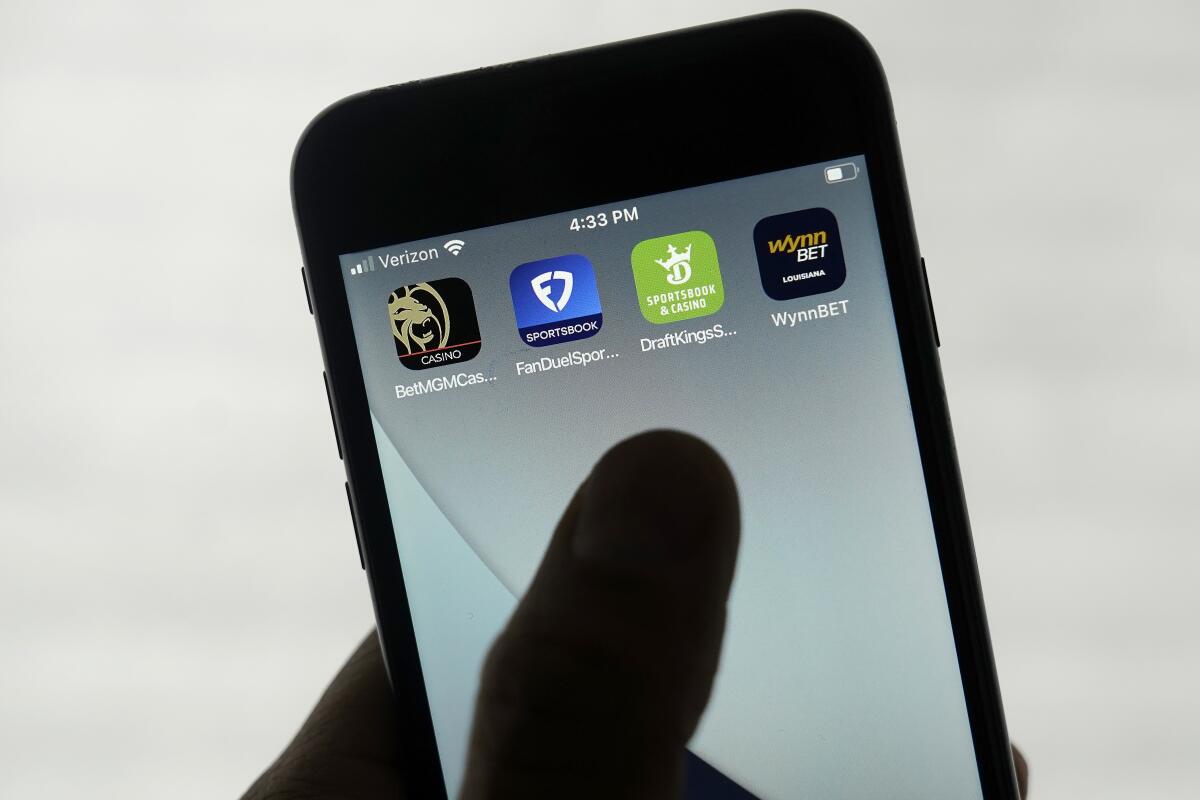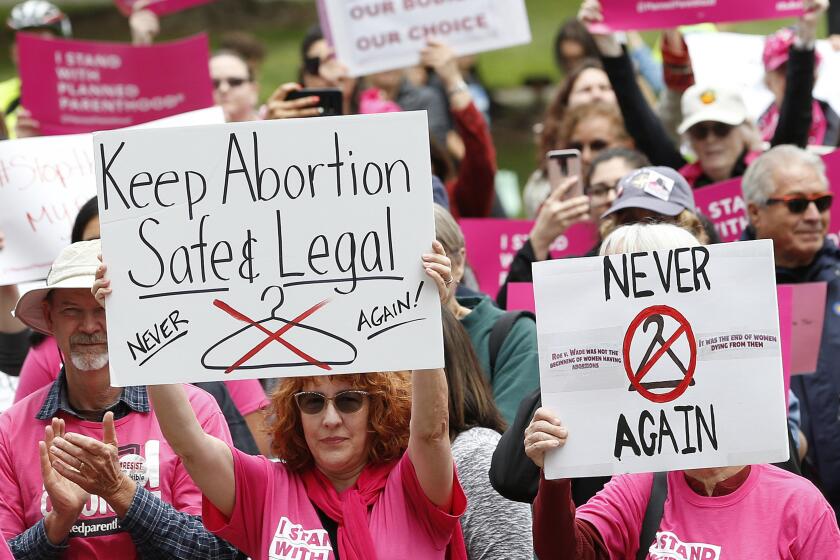Propositions 26 and 27, which would have legalized sports gaming, lose big

SACRAMENTO — Propositions 26 and 27 were resoundingly rejected by voters in Tuesday’s election, despite a half-billion dollars in spending to convince Californians to legalizing sports gaming.
Campaigns for the two competing measures flooded the airwaves with a constant barrage of attack ads, which some California political poll directors criticized for driving up opposition and confusing voters.
The Associated Press called the contests, though official results will take longer.
Proposition 26 would have allowed in-person sports betting at tribal casinos and horse racing tracks. Leaders of four of California’s most successful Native American tribes with gaming interests are the original proponents of Proposition 26, which would impose a 10% tax on sports betting to fund gambling addiction treatment and enforcement programs.
Voters weigh in on Proposition 1, the statewide ballot measure that would add a right to abortion to the California Constitution.
Proposition 27 would have allowed online sports wagering, including on cellphones and tablets, and was funded by gambling corporations, including sports gaming companies DraftKings and FanDuel. If the measure passed, tribes and gambling companies with sports betting licenses would pay 10% of their take from sports bets each month to the state, after subtracting some expenses and losses, to fund programs for homelessness and gambling addiction.
Proposition 28 was designed to replenish resources for K-12 courses such as dance, theater and graphic design that are typically the first to be cut from school budgets.
Backers of the measures have inundated voters with ads and blown away previous state spending records, but they faced an uphill battle from the start. A UC Berkeley Institute of Governmental Studies poll, co-sponsored by The Times, in February showed Californians were open to the idea of legal sports betting, but the presence of two competing initiatives often makes it more difficult for either to pass, said poll director Mark DiCamillo.
“They should have gotten their act together. They should have only had one initiative,” DiCamillo said.
Sacramento State political scientist Kimberly Nalder agrees that many voters probably decided to just “throw up their hands” after being enveloped by a constant stream of ads.
“It just feels like overkill,” Nalder said. “There’s just so much money being poured into these, and people are rightfully suspicious of campaign ads because they’re often misleading or outright incorrect.”
Anti-tobacco advocates fought for years to end the sale of flavored products they said have generated a youth vaping crisis.
More to Read
Sign up for Essential California
The most important California stories and recommendations in your inbox every morning.
You may occasionally receive promotional content from the Los Angeles Times.













